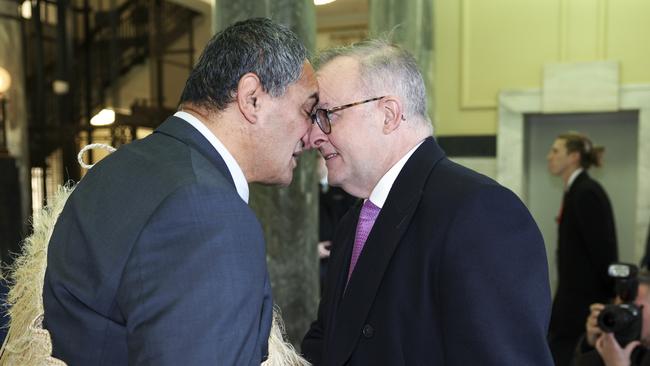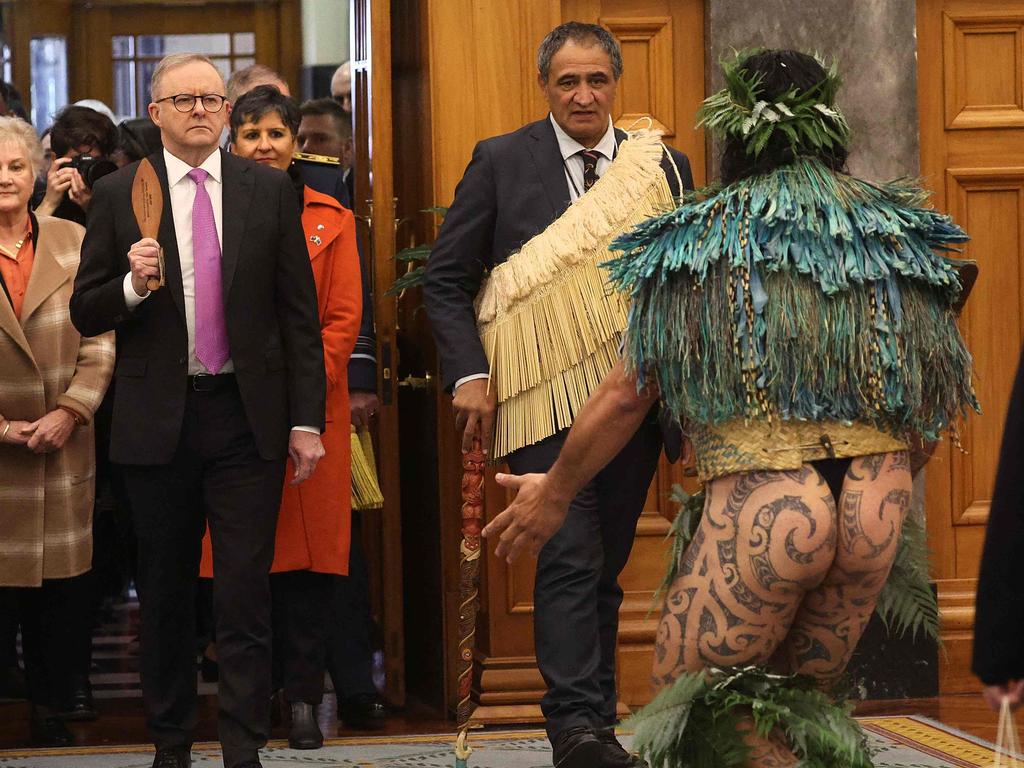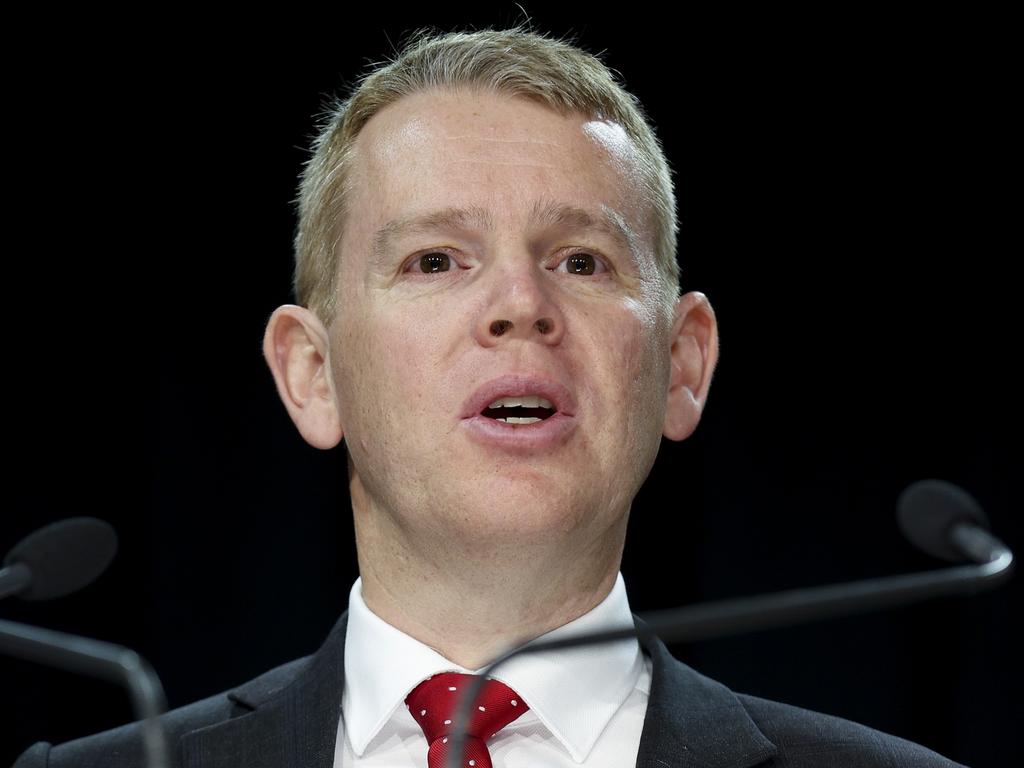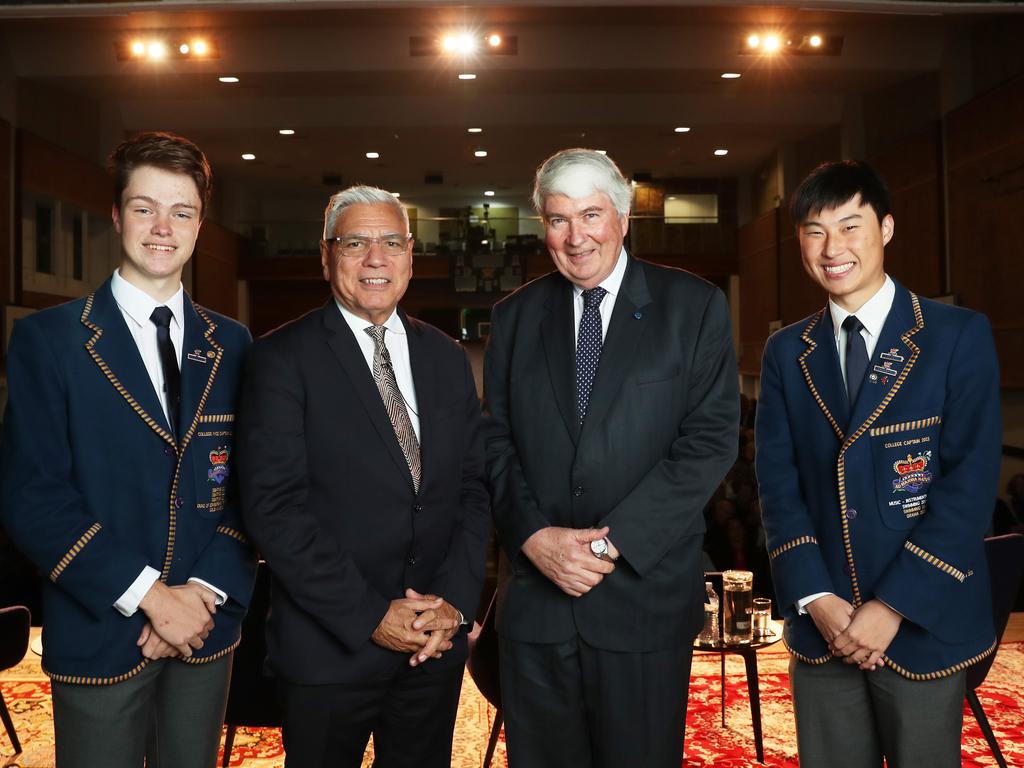Chris Hipkins signals support for Indigenous voice to parliament through NZ example
Chris Hipkins said the country had experienced controversies on its path to reconciliation but ‘things moved on’.

New Zealand Prime Minister Chris Hipkins has held up his country as one that has successfully embraced reconciliation with its Indigenous people, in a strong signal of trans-Tasman support for the voice referendum.
Standing alongside Anthony Albanese in Wellington, Mr Hipkins would not comment directly on the looming poll on an Indigenous voice to parliament and executive government – acknowledging that it was a matter for the Australian people – but said New Zealand was a stronger country because of its Treaty of Waitangi.
While there had been controversies in New Zealand’s path to reconciliation, Mr Hipkins assured Australians that life had moved on.
“I am firmly of the view that the process of reconciliation that New Zealand has been going through for a number of decades has been overwhelmingly positive for New Zealand. That doesn’t mean that there haven’t been bumps in the road, that doesn’t mean there haven’t been periods where it has been very controversial,” Mr Hipkins said following the Australia-New Zealand leaders’ meeting.
“But when I look back at some of those controversies, many of which have happened during my lifetime and actually during my adult lifetime, things moved on. Yes, they were controversial at the time and now many people would look back on them and wonder what was so controversial about them, because the reconciliation process has ultimately been very positive.”
Mr Albanese stressed on numerous occasions that Australia’s and New Zealand’s histories were different but said there was a consciousness about the voice referendum when he spoke to people in the Pacific.
New Zealand is increasingly embedding its Maori heritage in its national affairs.
“Of all the First World nations that would form colonies, we are alone in not recognising the First Nations peoples … Our history in Australia goes back before 1788 and that should be acknowledged in our nation’s founding document,” the Australian Prime Minister said.
“What is being asked to vote for (at the referendum) is very clear and very specific … It’s important that people know what the vote is for and what it is not.
“It is for those specific things of recognition, listening in order to achieve better outcomes.”
As the polls show falling support for the voice, which is due to be voted on between October and December, leading No campaigner Warren Mundine declared there was nothing specific or clear about the referendum.
“That’s the problem. Polling shows people are confused about it, that’s the No. 1 issue they raise,” he said.
“No one know what a voice is. It’s just totally bizarre (Mr Albanese’s claim). The good news is that the Australian public want recognition of Aboriginal people in the Constitution and want practical outcomes for Aboriginal people – they don’t see the voice as bringing about those practical outcomes.”
Former deputy Liberal leader Julie Bishop on Wednesday threw her support behind the voice, saying it would be a “a step in the right direction” and had to be given a chance.
She conceded the referendum was made more complex by two Indigenous leaders fronting the Yes and No cases in Noel Pearson and Mr Mundine, saying it put its success at greater risk and confused Australians.
“It is a step in the right direction. I sat through too many of those Closing the Gap speeches in parliament to sense that what we were doing was working to close the disparity and the inequality between Indigenous and non-indigenous populations,” she told the National Press Club.
“In some instances, the key measures were getting worse, not better. So it’s not a question of money, it’s not a question of politicians coming up with policies, it’s a question of giving Indigenous people the franchise to make decisions to implement policies that will work. We have got to give it a chance.”
Ms Bishop would not say whether she was disappointed her party was campaigning against the voice or that Peter Dutton had labelled it divisive, Orwellian and something that would “re-racialise” Australia.








To join the conversation, please log in. Don't have an account? Register
Join the conversation, you are commenting as Logout